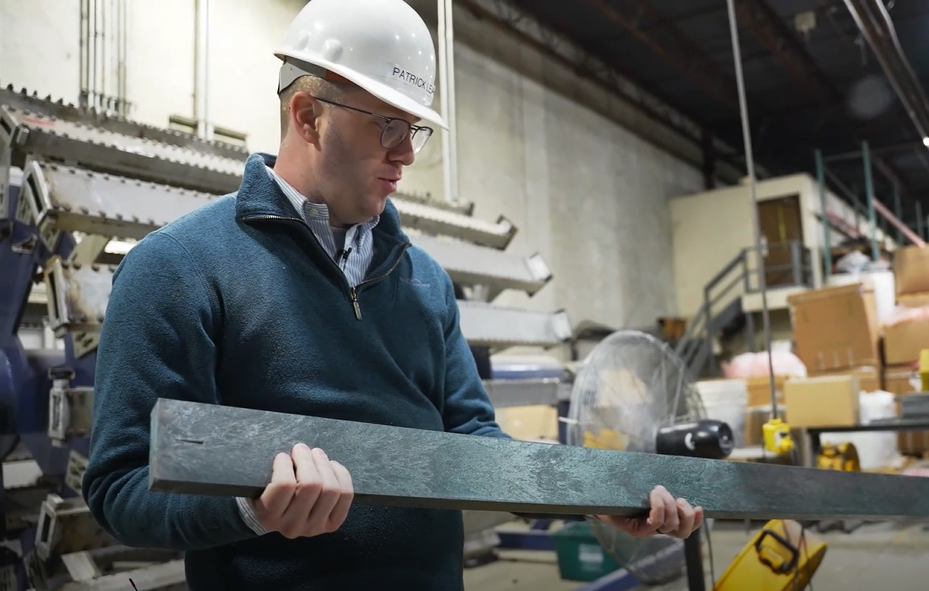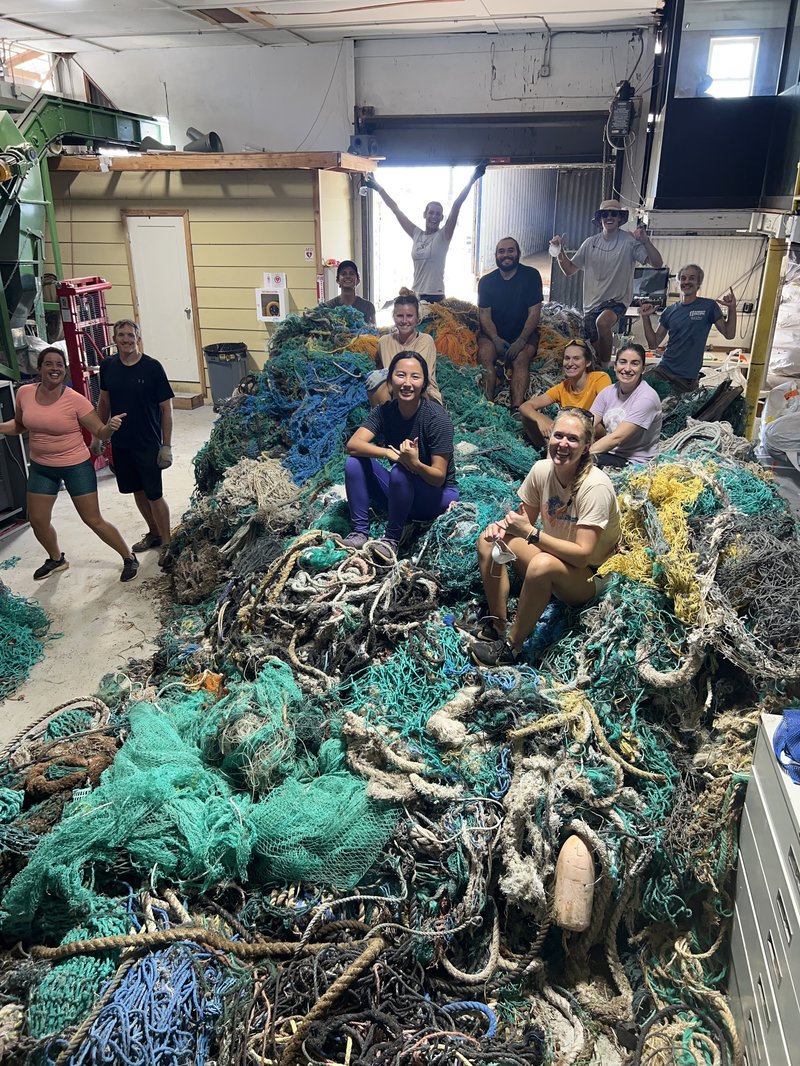
When people walk into the recycling facility of FirstStar Fiber in Omaha, they see bags of trash from floor to ceiling.
But it’s not going to a landfill.
“What makes FirstStar recycling unique is then we take hard to recycle plastics,” explained CEO Patrick Leahy. “We take those, recycle them in house. We don’t ship them out to another place. We make plastic lumber or pellets with it.”
Leahy said the Omaha company is one of just a few in the U.S. that do this. And word made its way across the Pacific Ocean and nearly 4,000 miles away to the Hawaii Pacific University Center for Marine Debris Research in Honolulu.
The organizations the center partners with together pull out nearly 200 tons of derelict fishing gear from the ocean every year. And those marine plastics come from all over the world. Dale Gubbels, the founder of FirstStar, helped initiate the unlikely partnership.
“The idea for this phase of our work is to bring attention to the fact that what we’re doing in Nebraska with our plastics has an impact well beyond our ‘shores,’” he said.

Although Nebraska is the farthest state from any ocean in all directions, Gubbels said the landlocked state can still have an impact on the world’s oceans. And one way to do so is to make retired fishing materials into usable plastic.
Most of the fishing gear travels across the globe, he said, from places like China and India. Fishermen’s nets can get tangled, lost or caught in propellers, and are often cut and released once they’re tangled and no longer of use.
“And because we have to remove all of this to protect our coral reefs and our sea turtles, we’re left with a giant burden of this trash. The world’s trash is washing up on our shores,” said Jennifer Lynch, a research biologist and the co-director of the Center for Marine Debris Research.

“Plastic is made out of carbon, and when you burn carbon, it turns into carbon dioxide or other greenhouse gasses that will contribute to the warming issue and the changing climate that we are seeing happening now,” she said. “So by keeping that carbon in the material, whether we do it in Omaha or Hawaii, we’re not releasing it to our shared atmosphere.”
So Leahy and Gubbels’ team is turning that fishing gear into a type of durable, plastic lumber.

This isn’t going to be a long-lasting project, Leahy said. It’s expensive to send the fishing gear all the way to Omaha, and it costs money to run the equipment to make it into lumber. That’s why Gubbels and Leahy clarify the project is more about creating a sort of pilot program to prove Nebraska can help find a solution to ocean litter–and help recover from natural disasters.
“The hope being, if we can show that this is successful, we can start a similar kind of plant there in Hawaii, where they can just process it on site and use the plastic lumber sheeting other products to help rebuild places like Maui,” Leahy said.

The project at this point is mostly about proving that their technology can help find a solution to ocean litter.
“This is a trial to see if we can do it closer to the source of the plastics,” he added. “That’s what’s needed. When it comes to waste, you don’t want to move it a bunch of times. You want to handle it where it’s generated.”
The Omaha company is looking for the right formula that can be replicated to turn the fish net polymers into usable lumber rather than introducing more plastics. It is looking for a few things to define the project as successful. The boards have to withstand all different weather conditions; they have to be sustainably made. The price has to make sense to replicate it in Honolulu. Lynch said while new plastic can be bought at around $400 a ton, it costs about $5,000 to remove it from the ocean.
Mafalda de Freitas works with Lynch at the Center as an environmental scientist. She works with the teams to remove the plastic from the shores. She said the work founder Dale Gubbels and FirstStar Fiber are doing in Omaha will have a direct impact on more than just the environment, but also the Hawaiian economy.
“Recycling is never going to be the next Amazon. It’s not going to be a unicorn business, super lucrative,” she said. “It is more of a public service, such as we’re protecting the environment, but being able to do this project and bring the technology that Dale has been working on developing in Omaha here, creating a circular economy here in Hawaii.”
As of now, some of the pilot lumber boards are a bit wiggly, but some seem to be ready to turn into building material and be sent back to the Aloha State.
The post From the Pacific Ocean to Nebraska: One Omaha company recycles the world’s derelict fishing gear appeared first on The Reader.







